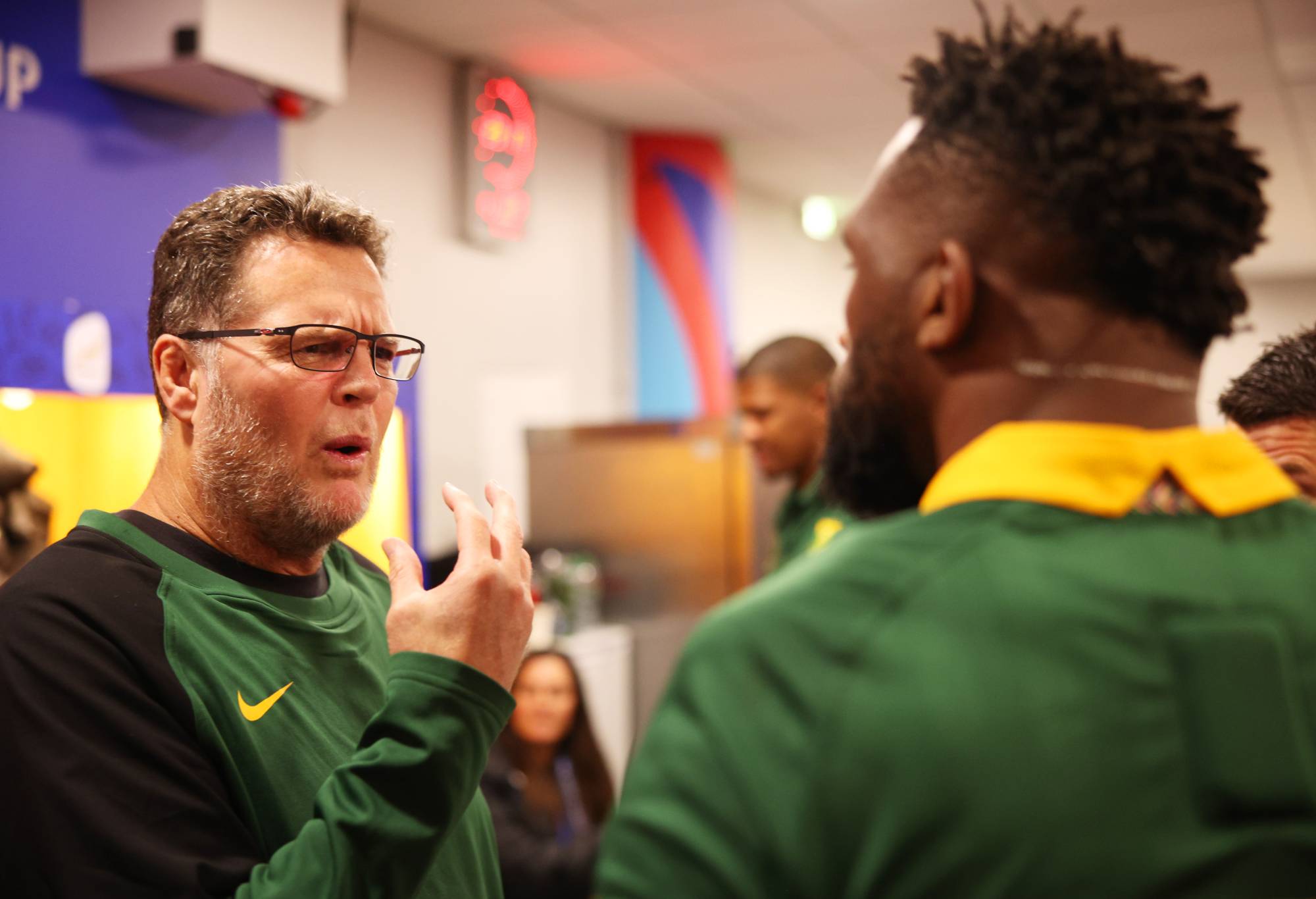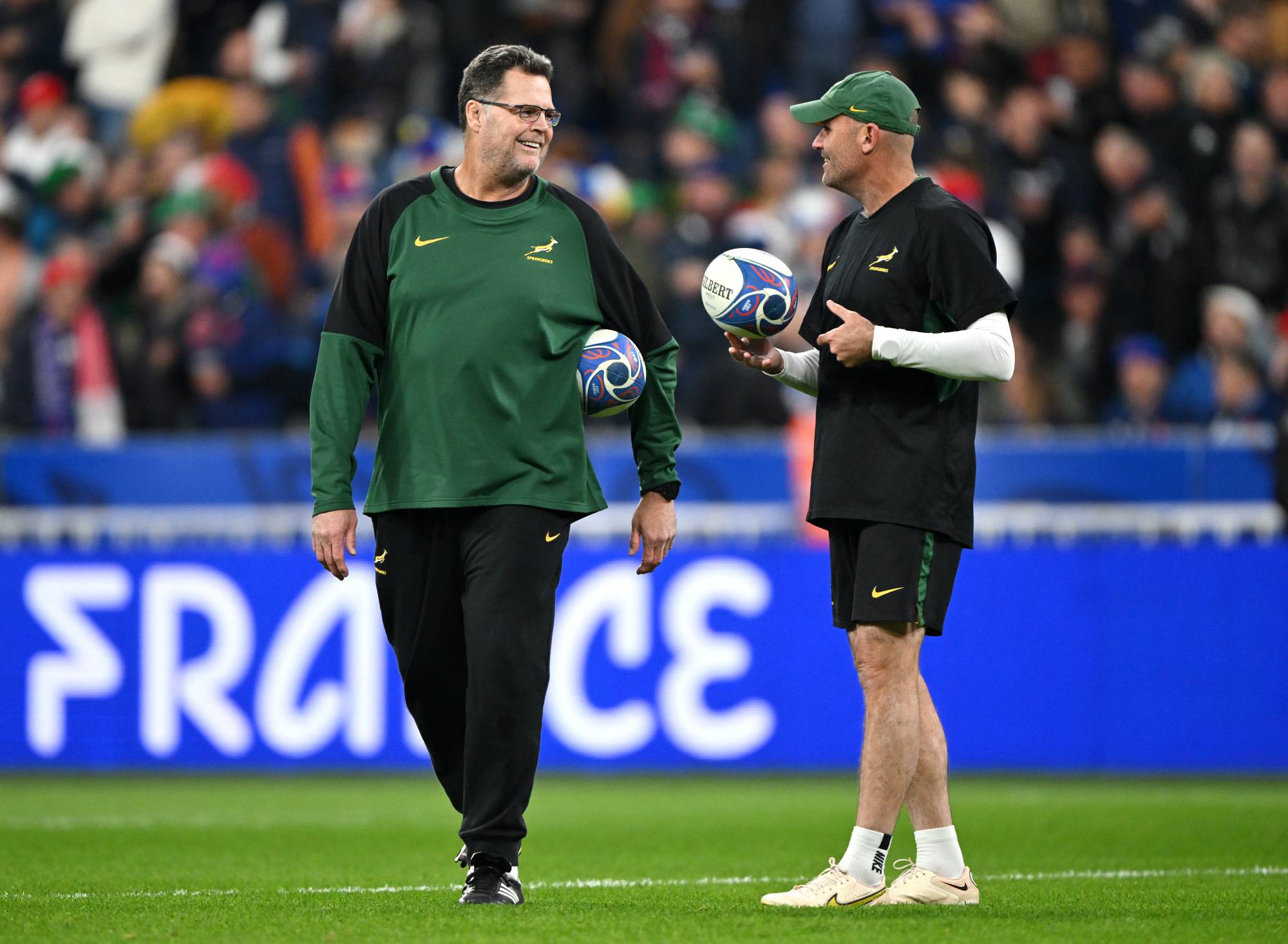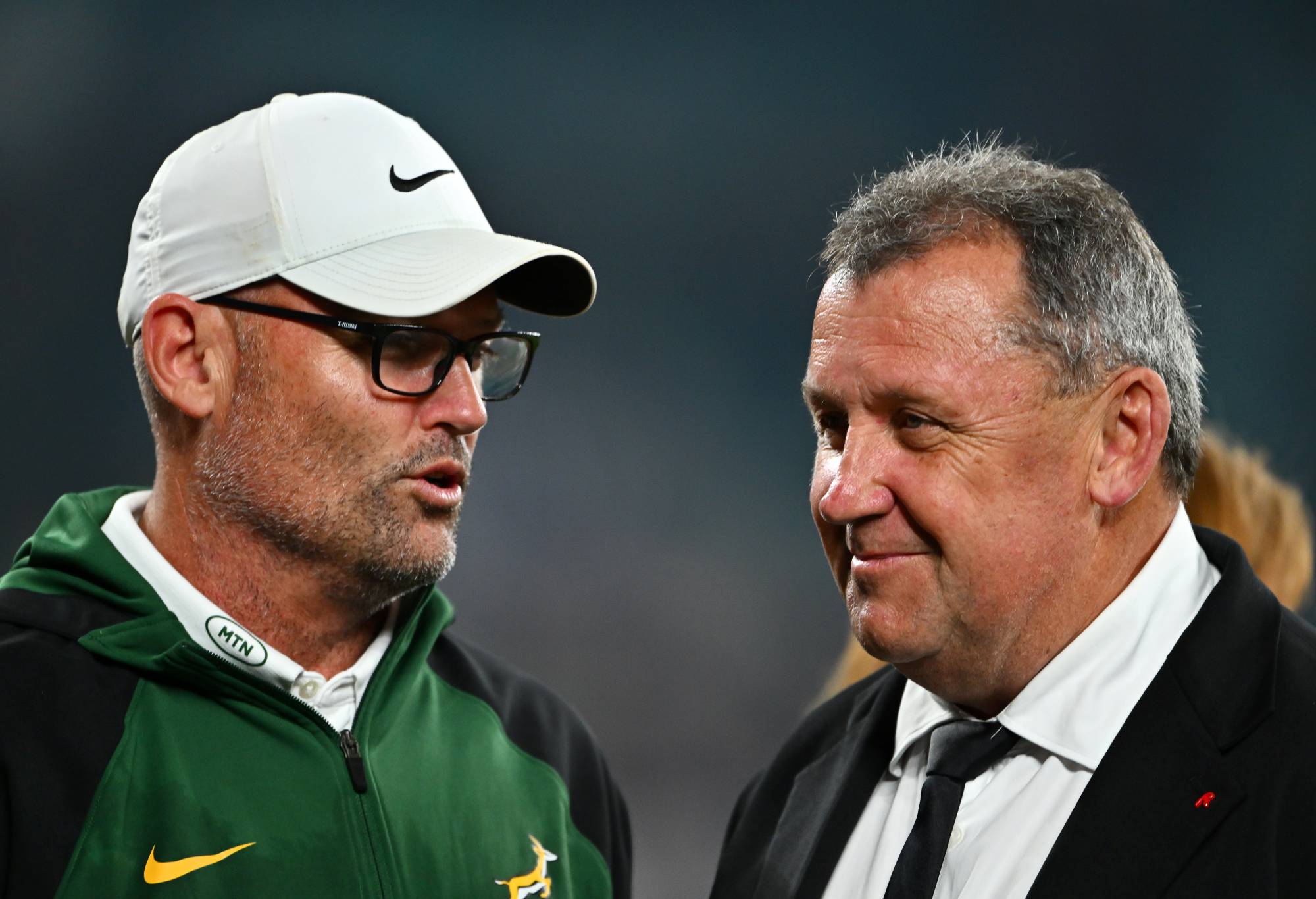Imagine a man who had grown up in Despatch with Rassie Erasmus but had spent the last five years in a medically induced coma, seeing South Africa’s director of rugby at Charles de Gaulle airport at the passport line next week, having a minute before heading to different gates and asking: “Howzit, Rassie! What you been doing lately?”
After whipping through a quick litany of the Springbok coach job, appointing the first black captain, a World Cup win in Tokyo, a prizewinning docudrama, a Lions series saga in a pandemic, a year disrepute ban, an awkward porn tweet, drunken dancing posts, another referee-driven censure, appointment to World Rugby’s planning group, a bestselling book, accusations of misogyny, a 7-1 record spanking of the All Blacks, allegations of rendering rugby into ruin, revived the traffic light system, and a return to the World Cup final, with his black vice captain and only hooker accused by a white Englishman of racism.
But will he end with: “We went back to back!” or “We lost and I’m off to Australia to be their coach.”
Rassie cannot handle peace. In his compelling book co-written by David O’Sullivan he unwraps his boyhood search for the core of his father, a profound alcoholic who died young. Young Rassie tried in vain to soothe the rage in the house, cradling his father and trying to stop him from hitting himself.
Even his most fervent critics would struggle to read those chapters with a dry eye: the wild honesty and deep anger is palpable.

Rassie Erasmus, Coach of South Africa interacts with Siya Kolisi of South Africa inside the South Africa dressing room following the Rugby World Cup France 2023 match between England and South Africa at Stade de France on October 21, 2023 in Paris, France. (Photo by Adam Pretty – World Rugby/World Rugby via Getty Images)
The precise pathway to Rassie’s anti-establishment mindset is laid bare. He knows no boundaries; he can be the most enjoyable person you have ever met, or ruthlessly focused on mission over man.
Nothing will ever be enough; he is a man on a mission impossible. He lurches from crisis to self-inflicted crisis. But along the way, he gets so many things done.
His analytical defensive guru and titular head coach (until things get very serious) measures and mollifies and placates and covers over Rassie’s emotional hills and valleys, and brandy-fueled tweets. Jacques Nienaber has known and loved (and may we say, saved) the Rugby Rogue for twenty-five years.
Rassie has brilliant ideas and the courage to pull the trigger, as his momentous cut of Handre Pollard to begin the Cup and his hook of Manie Libbok after 31 minutes in a semi reaffirm, but he needs a right hand man as much as or more than Eddie Jones to curb his sometimes chaotic instincts.
Maybe it even takes two aides: young catlike Dubliner Felix Jones (he was born after Duane Vermeulen) also has a naysaying voice Rassie hears.

Jacques Nienaber, Head Coach of South Africa, speaks with Rassie Erasmus, Coach of South Africa, prior to the Rugby World Cup France 2023 Quarter Final match between France and South Africa at Stade de France on October 15, 2023 in Paris, France. (Photo by Mike Hewitt/Getty Images)
But here they are, this caravan of big characters, led by impresario Rassie, calibrated by Nienaber, whispered to by Felix the cool cat with their plans executed by 33 men who speak three varietals of English, four types of Afrikaans, a rainbow of Xhosa, Zulu, Venda, and Sotho, and a large proportion live in Japan, France, England, and Ireland.
The modern Boks are not stereotypical farm boys, naive as Rassie when he left Despatch to become a proper rugby player, having never flown or even been to Cape Town or Durban.
Willie le Roux is a certified sushi chef, Eben Etzebeth’s French is not bad, Vermeulen is a certain future head coach, Siya Kolisi is a worldwide brand, Vincent Koch is a witty London comedian, Top14 superstar Cheslin Kolbe and Leicester Tiger ace Pollard are in the top five highest paid rugby players, Damian de Allende is a GQ cover boy, and Steven Kitshoff is an “influencer” of millions.
Frans Malherbe, Franco Mostert, and Kwagga Smith may be the last of the proper farmers.
Melding all of this, these stories, satisfying egos, into a rock hard belief system which may lose a game here and there but stay in every fight, win almost every second half, and concede the fewest tries and cards: this is a thing worthy of praise.
But it is never enough and it may never be: Rassie can wake up in paradise and immediately find hell.
This weekend he faces a satisfied man, a good company man, he who was reviled and written off until his All Blacks ran from their own 22 at Ellis Park and pulled Ian Foster off the chopping block.
Yes, New Zealand still went on to lose to Argentina, draw with England, lose heavily to the Boks, and drop the opener in Paris, but Foster is having a six-week chuckle, knowing he has but one job: exceed lower expectations than an All Black coach has ever had at the Cup.

Jacques Nienaber, Head Coach of South Africa, and Ian Foster, Head Coach of New Zealand, speak at full-time following the Summer International match between New Zealand All Blacks v South Africa at Twickenham Stadium on August 25, 2023 in London, England. (Photo by Dan Mullan/Getty Images)
Even his triumphant return of the All Blacks to a grand final is diluted by many, pointing to Jason Ryan and Joe Schmidt as the architects of the improved tight five and starter play. Foster seems not to care: he simply plugs away.
Yes, he has a sly sledge skill: tweaking Ireland a wee bit. But he is not as skillful at it as Steve Hansen. Exhibit A: Foster pondering out loud if his style of rugby (losing to France) is perhaps better than South Africa’s (winning in a six-try thriller). He was met with a fair amount of derision, particularly since he cast shade on one of the best 21-point matches (Ireland 13 South Africa 8) played in decades.
His captain, tight lipped Sam Cane, has been Foster’s stoic alter ego on the pitch. Even if the old Waikato flyhalf never delivered the crunch of Cane’s tackles, the two seem to see the world through the adage of Cane’s college: Pergo et Perago (I take up the work and I carry it through).
In contrast, Rassie’s captain dances in the tunnel and is a Roc Nation client.
Yet, there will be no ill will this week.
The bookmakers have restored favourite status on Foster’s team.
This will suit Rassie far better; and perhaps Ian, too.
Their collision course has starkly different possible ends: if Rassie could tell his long lost friend the Boks repeated, he and many of team would have legitimate claims to being the best in South African history, and the Boks would have won more Cups in less attempts than New Zealand. Win or lose: Rassie will roar.
If Foster and Cane were to hold the trophy high, they would be restoring rugby leadership to where they think it belongs. Win or lose, these quiet Chiefs will not emote.
One hundred and two years after first their countries met in a Test, and 28 years after they met for the Cup, the tempestuous Springboks and the tranquil All Blacks get it on under the late lights in Paris.































































































